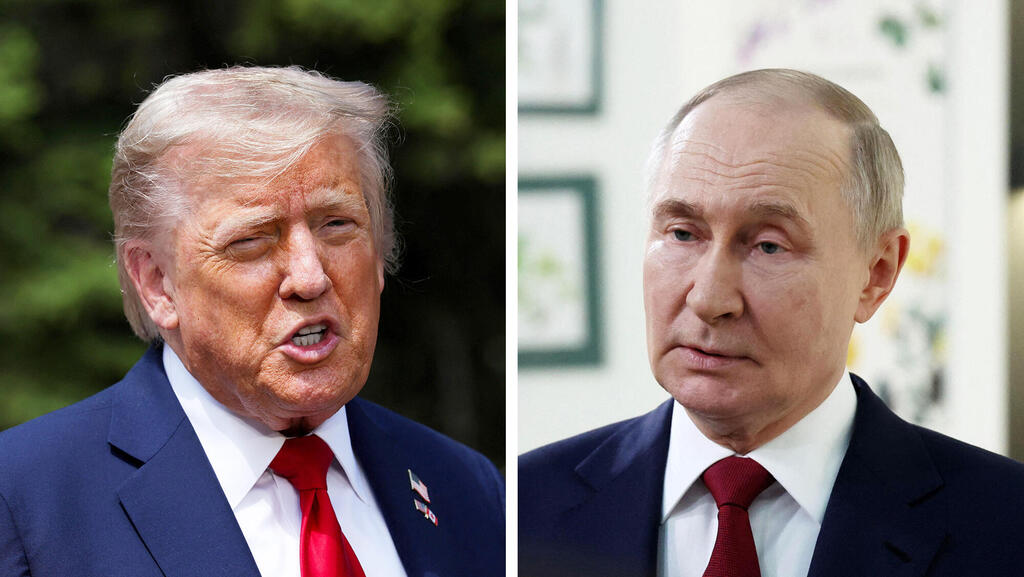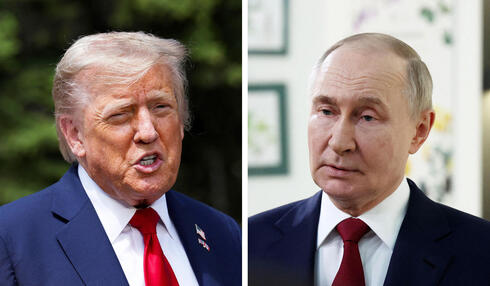
Trump eyes final blow to Iran-Russia-China axis
Israel hands him a rare chance to dismantle the anti-Western coalition that has eluded U.S. presidents for decades.
This may be one of the riskiest bets to make today, but in the past 24 hours, signs have been mounting that U.S. President Donald Trump will not hold back and may actively draw the United States into the unfolding battle between Israel and Iran.
It began with Trump abruptly cutting short his visit to the G7 summit - hardly a move one would expect if the only purpose were backchannel diplomacy with Iran. Like many modern professionals, the president is perfectly capable of remote negotiations. The decision appeared to signal something more urgent. On Tuesday, those signals grew louder, with radar systems across Europe detecting increased military activity: aircraft, refueling planes, and even aircraft carriers mobilizing toward the Middle East.
Even Vice President J.D. Vance - a standard-bearer for the isolationist wing of the Republican base - shifted his tone. He tweeted, “the president has shown remarkable restraint in keeping our military's focus on protecting our troops and protecting our citizens. He may decide he needs to take further action to end Iranian enrichment. That decision ultimately belongs to the president.”
Still, there are valid reasons to assume Trump will hesitate. His voter base remains largely opposed to foreign wars. And Trump, ever the dealmaker, has long preferred brokering agreements over deploying troops. Everything is a negotiation, a performance of leverage and optics - the “art of the deal.” And yet, his first term in office offered few tangible deals to support that branding.
Looking at the current situation through an economic or trade lens - which Trump, a businessman at heart, would surely appreciate - there appears to be an outsized potential upside and a relatively limited downside to intervention. Israel, in this case, has done most of the heavy lifting. Its military campaign has already laid the groundwork: the plan is clear, the targets are softened, and the geopolitical table is set. All that remains is for the U.S. to step in at the eleventh hour, assert decisive strength, and reap the strategic benefits.
For Israel, eliminating Iran’s nuclear threat is a long-standing national dream. For Trump, the calculus is more practical: the American public’s aversion lies primarily in seeing “boots on the ground” - troops stationed abroad in conflicts with murky goals and endless timelines, as seen in Vietnam, Iraq, and Afghanistan. Those wars left scars not just in lives lost but in the reallocation of domestic funding from education and healthcare to international military ventures.
That legacy ultimately helped fuel Trump’s return to the White House. America remains a superpower, but one increasingly plagued by domestic decline, falling behind developed nations in metrics like life expectancy and infant mortality. And yet, this current conflict may not require a massive troop presence. Given Israel’s recent military gains, U.S. involvement could be limited, swift, and relatively inexpensive.
From a strategic communications perspective, American intervention now would also restore the U.S. image as a superpower capable of decisive, outcome-shaping action, while averting the broader chaos of a prolonged regional war or a global oil shock. The worst-case scenario for Trump? That the conflict drags on like Gaza, pushing Israel to target Iranian oil reserves and sending energy markets into turmoil.
Related articles:
But if the U.S. strikes now - say, by targeting the Fordow nuclear facility - while Iran is signaling distress, the conflict could conclude quickly. Trump would emerge a hero at home and abroad. Americans could celebrate the Fourth of July without skyrocketing gas prices, and Trump would be poised to sign the regional peace agreement he’s long coveted, possibly even the Nobel Peace Prize.
Perhaps more importantly, it would send a blunt message to Iran’s partners in the Russia-China axis that America still calls the shots. Trump, who was frustrated by Putin’s refusal to support a ceasefire in Ukraine, may see this as his chance to reassert U.S. authority on a global stage. Despite his America First rhetoric, he remains committed to his earlier mantra: Make America Great Again. And that road runs through erasing the humiliating images of the U.S. withdrawal from Afghanistan, images of desperate allies clinging to departing aircraft.
If Trump can help dismantle the Iran-Russia-China axis, it would mark a historic, unprecedented achievement - one that many U.S. presidents dreamed of but none achieved. Israel, for now, appears to be handing him that opportunity on a silver platter.
